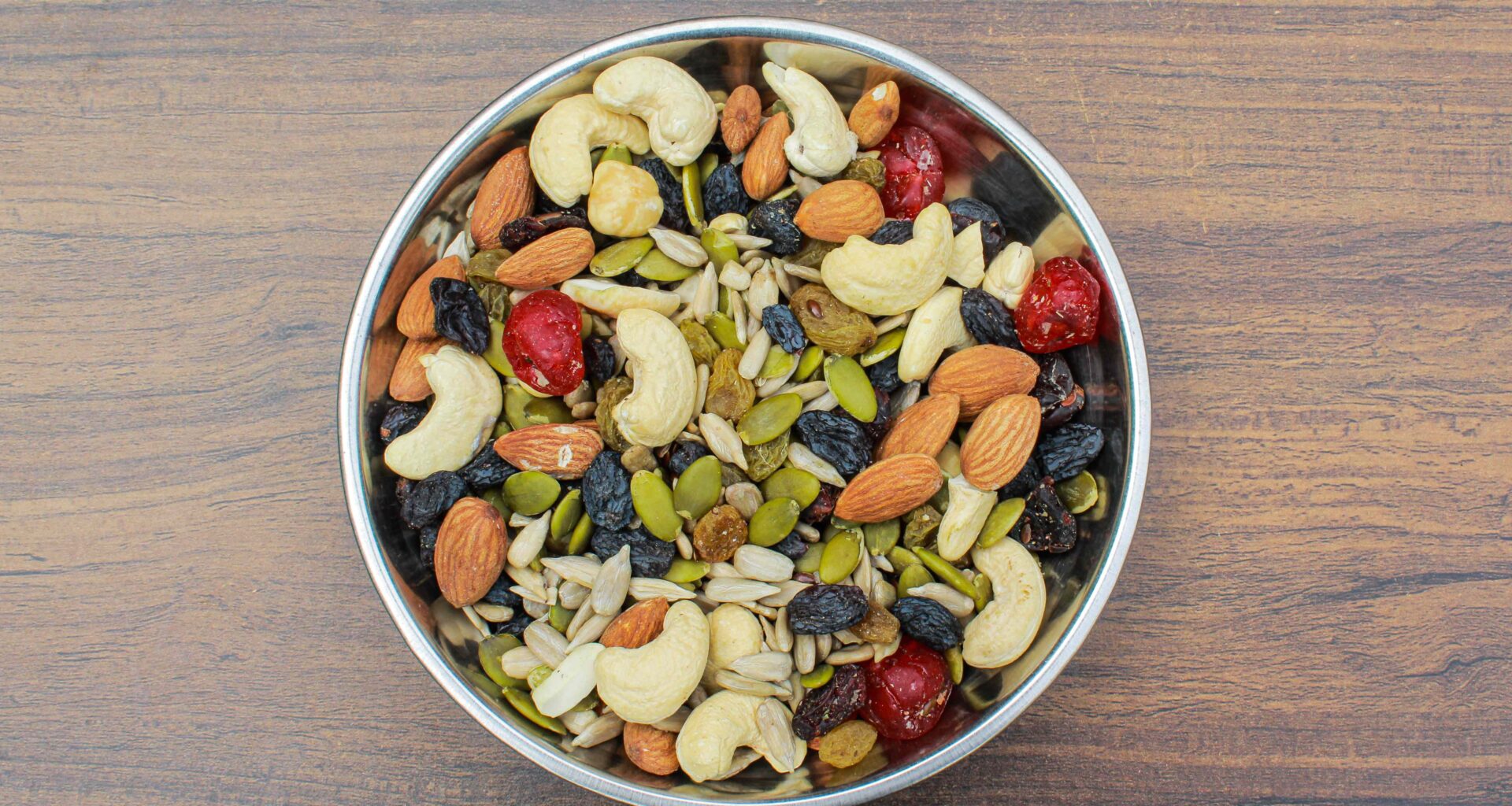Nutrition advice often centers on weight loss, but gaining weight can be just as challenging, especially if you have a small appetite or tend to feel full quickly. The best high-calorie snacks pack a lot of energy and nutrients into small portions, allowing you to eat more frequently while choosing foods that also support your overall health.
Here are eight nutrient-dense, high-calorie snacks to help you gain weight:
ToscaWhi / Getty Images
Calories: 230 calories in 1 cup of plain, whole-milk yogurt
Greek yogurt offers a nutrient-dense snack, with 21 grams of protein. It also contains probiotics, calcium, and other essential micronutrients like magnesium.
Choosing whole milk (full-fat) Greek yogurt helps you add more calories without increasing the amount you need to eat. Beyond snacks, it’s an easy add to boost calories in any meal—from topping tacos or chili, to stirring into oatmeal, smoothies, or creamy dressings.
How to enjoy it: Top Greek yogurt with your favorite toppings, such as granola, nut butter, or berries, or eat it plain as a snack.
nata_vkusidey / Getty Images
Calories: 191 in 2 tablespoons
A chocolate peanut butter smoothie blends protein, healthy fats, and fiber into a tasty portable snack or mini-meal. Made with milk or a dairy-free alternative, chocolate protein powder, peanut butter, and a banana, it feels like a treat but offers extra calories to help you meet your weight-gain goals.
How to enjoy it: Blend 1 cup of milk or unsweetened almond milk, 2 tablespoons of peanut butter, one scoop of chocolate protein powder, and half of a frozen banana.
OsakaWayne Studios / Getty Images
Calories: 160 in one-half of a medium avocado
With its creamy, mild flavor, avocado is a delicious way to add calories to your diet. It can also provide heart-healthy fats, fiber, and potassium.
Regular avocado consumption is associated with a lower risk of cardiovascular disease and improved cholesterol levels, thanks to high monounsaturated fat levels. Avocados also provide antioxidants that may help protect cells from oxidative stress.
How to enjoy it: Mash it on whole-grain bread and top with a pinch of sea salt and a drizzle of olive oil.
Anna Blazhuk / Getty Images
Calories: 180 in 1 cup of 2% low-fat cottage cheese
Aside from the benefit of added calories, cottage cheese is rich in protein—one cup provides 24 grams of protein. It also contains calcium, phosphorus, potassium, and B vitamins.
Choosing 2% or whole-milk cottage cheese is especially helpful if you’re trying to gain weight because the higher fat content boosts the overall calorie density without increasing volume. This means you get more energy in a smaller serving.
How to enjoy it: Pair with fresh fruit, use it as a dip for crackers or veggie sticks, or eat it on its own with a drizzle of honey.
Westend61 / Getty Images
Calories: 160-180 per ounce (about a handful)
A handful of nuts and seeds boosts your daily calorie intake while providing fiber, protein, and healthy fats. When you combine nuts like almonds, walnuts, and pistachios in a trail mix, you create a convenient, calorie-dense snack.
Regular nut consumption is associated with a lower risk of cardiovascular disease, improved metabolic markers, and even healthy aging in older adults.
How to enjoy it: Keep a bag of trail mix in your car or at your desk for easy snacking, or make your own trail mix using nuts, seeds, and dried fruit.
Marina Cavusoglu / Getty Images
Calories: 120 calories per cup (depending on fat content)
Kefir, a yogurt-style fermented drink, combines probiotics, protein, and calories. Its texture is similar to that of a smoothie, making it an easy way to get a nutrient-dense snack without needing a blender.
Kefir also offers functional benefits for gut and metabolic health. The probiotics in kefir support the gut microbiome, which may help reduce low-grade inflammation.
How to enjoy it: Drink it plain, or blend it with fruit for a smoothie-style snack.
by Elena Botta / Getty Images
Calories: 119 per tablespoon
It may not seem like a snack, but olive oil is calorie-dense. Paired with hummus—made from chickpeas, tahini, and olive oil— you get a nutrient-dense combination of healthy fats, plant-based protein, and fiber.
Olive oil is associated with improved lipid profiles and a lower risk of cardiovascular disease. Research on Mediterranean-style eating patterns also suggests that combining olive oil with legumes—like chickpeas in hummus—may support metabolic health and lower inflammation in the body.
How to enjoy it: Add a spoonful of olive oil over a bowl of hummus, and serve with whole-grain bread or warm pita.
grandriver / Getty Images
Calories: 98.2 in a tablespoon
Almond butter is calorie-dense and easy to add to snacks. In addition to the calories, a tablespoon provides around 3 grams of protein and a mix of healthy fats and fiber. Pairing it with an apple adds natural sweetness and crunch.
Regular consumption of almonds and other nuts has been linked to a lower risk of heart disease and type 2 diabetes, as well as a lower risk of all-cause mortality. Almonds are especially rich in monounsaturated fats, fiber, vitamin E, and magnesium.
How to enjoy it: Spread nut butter on apple slices, and sprinkle a little cinnamon for extra spice.
When you’re trying to gain weight, consistency matters more than any single food. Eating small, frequent meals or snacks every three to four hours can help you meet your calorie needs without feeling overly full.
If you struggle with appetite or tend to forget to eat, gentle reminders—such as setting a timer or planning snacks ahead of time—can help you stay on track. Focusing on nutrient-dense options ensures you’re not just eating more, but also supporting your overall health in the process.
